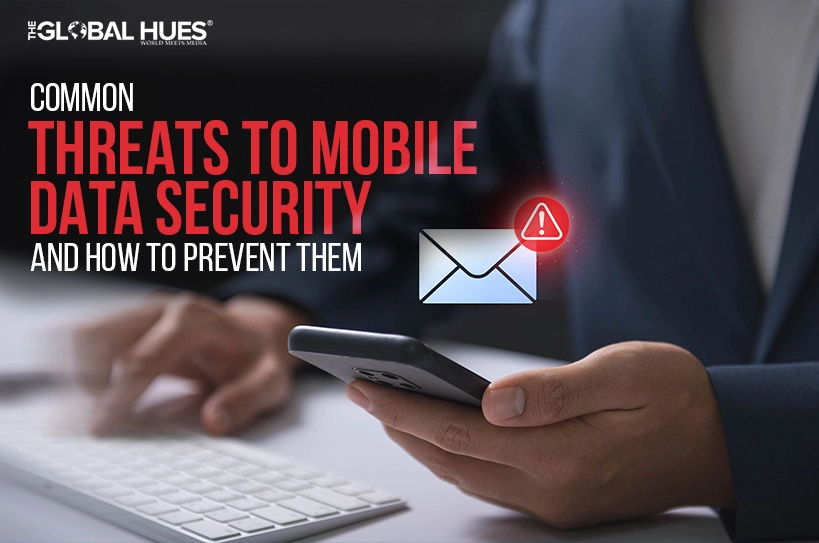Mobile devices are stuffed to the brim with all sorts of sensitive information. Personal contacts, photos, financial information, and confidential business documents are locked up in them. Such convenience! It can come with a handsome price tag, though: vulnerability to cybercrime. Ignore this glaring fact, and you may be confronted with a data breach. Ultra-tough mobile data security is the key here.
So, what threats should you be ready for? How do you defeat them? Read on if you care to know the answers.
Malicious Apps
These apps lure unsuspecting users into downloading them before they steal sensitive information (passwords, credit card numbers, etc.). There’s spyware that can secretly monitor your activities, record keystrokes, capture screenshots, and access your camera and microphone. Another type is ransomware. This can lock you out of your device and data, then demand a ransom for its release.
Here’s what you can do so these apps won’t ever stand a chance:
- Download apps from official stores only.
- Carefully review permissions before installation. Check if there are requests that seem excessive or unrelated to the app’s functionality.
- Research the developer and check user reviews for any red flags.
Want the utmost mobile data security for both business and customer data? Enterprise mobility management solutions are worth looking into. They’re not one to allow unauthorized data access; you can be sure malicious apps could never ruin your systems.
Unsecured Wi-Fi Networks
You’re out in public and you need to connect to the internet to do some financial things online. You open your phone and search for available networks. “Woah, I’ve got too many choices!” But don’t celebrate just yet.
Every time you access the internet using some sort of public or insecure Wi-Fi, there’s some extreme degree of risk right there. Such networks don’t come with built-in defenses, so it’s easy for hackers to intercept data being transmitted. In fact, according to one survey, 43% of public Wi-Fi users have compromised their online security.
But you can keep your device perfectly safe from such threats. First, never access sensitive apps (such as for banking) while on public Wi-Fi. What if you’ve got no choice but deal with this risky connection? See to it you’re using a virtual private network or VPN. This encrypts your internet traffic and creates a secure tunnel for data passage. Here’s another good one: turn “Ask to Join Networks” setting on so your device won’t connect automatically to unknown Wi-Fi networks.
Phishing Attacks
Deceives you with links to fake websites and then asks you to reveal personal information… does it ring a bell? That’s phishing for you; it’s an ever-present threat to mobile devices. Its favorite targets? SMS, email, and social networks. Statistics show that social media was the most targeted channel in phishing during the first quarter of 2024, at 37.6%.
Suspicious links and email attachments (most especially from unknown senders) are things you’ve got to be wary of at all times. So, verify who sent it and desist from clicking the link. Look out for spelling errors in the URL or discrepancies that could mirror a spoofed site, too. And never give out confidential information on unverified sites.
Device Loss or Theft
On average, over 250 phones are stolen every day in 2022. And that’s in London alone. What if that device falls into the wrong hands, and they get access to your photos, emails, and even financial accounts? There’s identity theft, financial loss, or reputational damage waiting on you.
Good thing preventative measures can be taken so losing a device won’t affect you that much. Use strong passwords, PINs, or biometric authentication. Enable remote wipe and location tracking features, allowing you to erase your data and locate your device remotely in case of loss or theft.
Regularly backing up your data is also essential in terms of mobile device security. This ensures that you can recover your information even if your device is lost or stolen. Back up your data to a secure cloud service or a computer and ensure that the backups are encrypted.
Outdated Operating Systems and Software
Outdated operating systems and software versions aren’t the most secure. These actually make your device their favorite target.
What should you do? Allow your device to automatically download the latest security patches. Or you can make it a habit to check the available updates if automatic updates are disabled. Also, clear apps you no longer use; they may still pose a threat even when not being actively used.
Final Thoughts
Mobile security is a pretty hot issue nowadays, but it’s not a losing game. Equipping your device with the right defenses shouldn’t be that hard. Arm yourself with the right knowledge, then couple that with preventive measures presented in this article. Don’t forget to continuously update yourself on emerging threats and leading practices for data protection so you won’t be caught off guard.
(DISCLAIMER: The information in this article does not necessarily reflect the views of The Global Hues. We make no representation or warranty of any kind, express or implied, regarding the accuracy, adequacy, validity, reliability, availability or completeness of any information in this article.)




